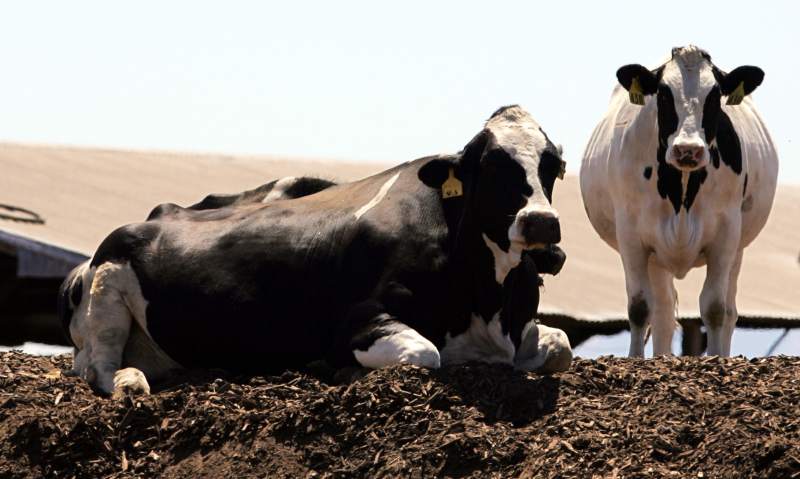The California Global Warming Solutions Act of 2006 (Act) establishes the State Air Resources Board (ARB) as the state agency responsible for monitoring and regulating sources emitting greenhouse gases (GHGs). The Act requires the ARB to adopt rules and regulations to achieve the maximum technologically feasible and cost-effective GHG emissions reductions to ensure that the statewide GHGs are reduced to at least 40% below the statewide GHG emissions limit no later than December 31, 2030. Pursuant to the Act, the ARB has adopted the Low-Carbon Fuel Standard regulations.
Existing law:
- Requires the ARB to approve and begin implementing a comprehensive strategy to reduce emissions of short-lived climate pollutants in the state to achieve, among other things, a reduction in methane emissions to 40% below 2013 levels by 2030;
- Requires the ARB, in consultation with the Department of Food and Agriculture, to adopt regulations to reduce methane emissions from livestock manure management operations and dairy manure management operations consistent with the strategy, as specified:
- Requires those regulations to be implemented on or after January 1, 2024, if the state board, in consultation with the department, makes certain determinations;
- Requires the ARB to provide guidance on credits generated pursuant to the Low-Carbon Fuel Standard regulations, and the market-based compliance mechanism, adopted pursuant to the act from the methane reduction protocols described in the comprehensive strategy for short-lived climate pollutants;
- Requires the ARB to ensure that projects developed before the implementation of the regulations to reduce methane emissions from livestock manure management operations and dairy manure management operations receive credit under the Low-Carbon Fuel Standard regulations and the market-based compliance mechanism for at least 10 years;
- Existing law also makes projects eligible for an extension of credits after the first 10 years, as specified.
This bill would:
- Eliminate the requirement that the ARB ensure those projects receive credit for at least 10 years and would eliminate the requirement for those projects to be eligible for an extension of credits after the first 10 years;
- Require the ARB, in implementing the Low-Carbon Fuel Standard regulations, to update the carbon intensity of each pathway for fuel derived from livestock manure to include all emissions of GHGs generated from the production of the fuel and all emissions of GHGs generated from the production of the feedstock;
- Require the ARB to limit the generation of credits for fuel pathway holders for biogas derived from livestock manure to the volume of feedstock at each associated dairy or livestock operation on January 1, 2017, or on the date the pathway was certified, whichever is less;
- Require a new fuel pathway application that includes the use of biogas derived from livestock manure to include all information and calculations used to determine carbon intensity and would require the state board to make that information publicly available on its internet website;
- Require an existing fuel pathway holder whose pathway includes the use of biogas derived from livestock manure to file a document that includes all information and calculations used to determine carbon intensity with the state board on or before January 31, 2024, and would require the ARB to make that information publicly available on its website on or before March 31, 2024.
Status: (Updated 2/5/24): Failed in Appropriations Committee.
Full bill text and related information.

